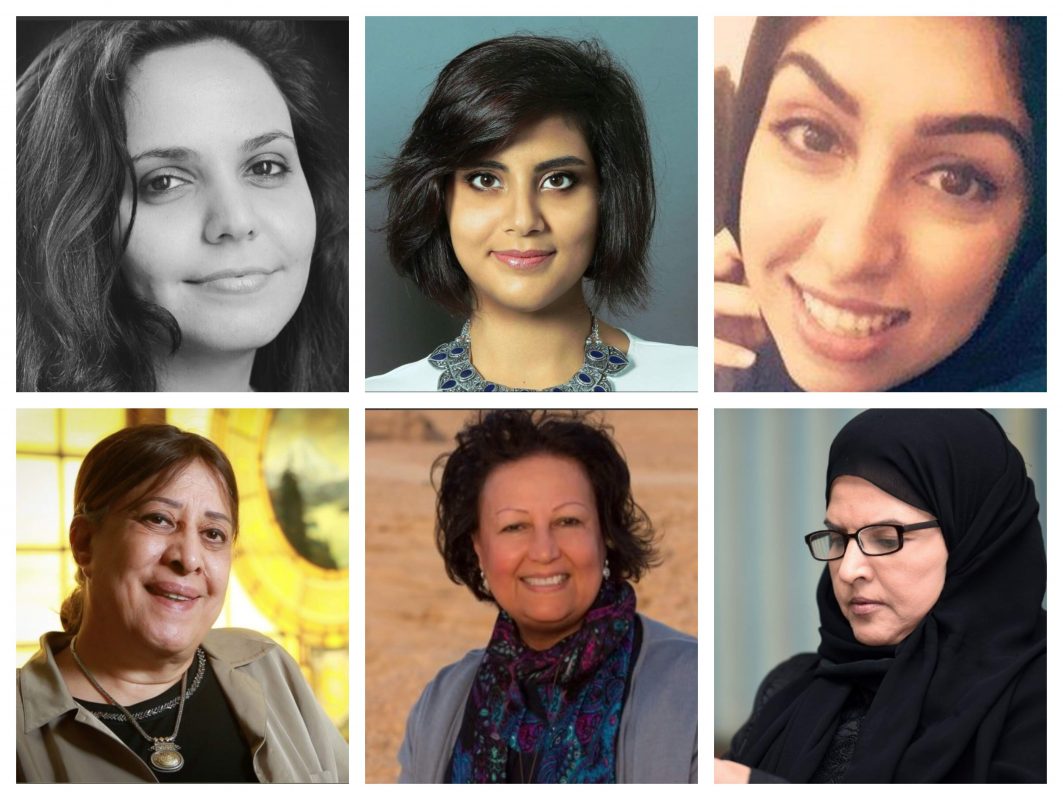It was November 2020. Global media were inundating diverse audiences with updates on the heated U.S. presidential election and the nation’s underlying internecine social conflicts. International opinions on the United States’ rancorous civil affairs left onlookers on the edge of their seats.
Amidst sheer chaos in the Twittersphere, human rights advocates across the world also waited with bated breath. But their eyes were trained on the life or death judgments facing Saudi women’s rights activists roughly 11,000 kilometers away from Washington, D.C.
The Observatory for the Protection of Human Rights Defenders reported that on 25 November 2020 Loujain al-Hathloul gave an appearance before the Riyadh Criminal Court. Her parents, acting as her legal representation, were given only twenty-four hours notice to prepare a defense, and purportedly due to the COVID-19 pandemic, no foreign diplomats or personnel from foreign missions were permitted into the courtroom. At the end of hours of grueling testimony, the presiding judge transferred Al-Hathloul’s case to the Saudi Arabia Specialized Criminal Court (SCC), whose jurisdiction covers national security and terrorism cases. Her sister and strongest advocate, Lina Al-Hathloul, pointed out the somewhat peculiar decision of the judge, who apparently “realized, after a year and eight months of dealing with the case, that he has no jurisdiction.”
On 21 December 2020, the SCC handed down sentences to both Al-Hathloul and fellow women’s rights defender Mayaa al-Zahrani of five years eight months imprisonment, on charges including contact with organizations or entities hostile to the Kingdom of Saudi Arabia (KSA). Subjected to pretrial detention since May 2018, Al-Hathloul has had two years ten months of this sentence suspended. It is worth noting that activists’ allegations against Saudi prison security forces, including incidences of torture, beatings, electrocution, waterboarding, forced standing, and sexual assault, have all been dismissed on the grounds of lack of evidence.
Due to mounting external pressure, Saudi officials released Al-Hathloul and Nouf Abdelaziz into house arrest in February 2021. In Al-Hathloul’s case, this release comes after 1,001 days in detention. The current word is that other prominent Saudi women’s rights defenders, including Al-Zahrani and Samar Badawi, may be released from prison into house arrest in March 2021.
On top of this, KSA has leveled a five-year travel ban on Al-Hathloul, and she and other Saudi women’s rights defenders remain at risk of having their full prison sentences reimposed at any point in the coming three years, should they be charged with even the pettiest of crimes.
The provisional release of these activists should by no means lessen international scrutiny of human rights practices in KSA. The kingdom’s putative reforms under its Vision 2030 agenda entail little day-to-day improvement in the situation of women’s rights defenders on the ground, as demonstrated in Saudi courts’ abhorrent handling of Al-Hathloul, Al-Zahrani, and others’ accusations of torture.
While the conditional release of Al-Hathloul imbues regional activists with immediate hope, women’s rights defenders face substantial hurdles when reintegrating into Saudi society following imprisonment. Amnesty International has long described the smear campaigning and stigmatization efforts KSA makes to silence rights activists and delegitimize their advocacy. Reentering their democratically closed society, in which they have been publicly (and falsely) accused of conspiring with foreign agents or committing terrorism, these women must now battle immense cultural, religious, political, and social stigmas rooted in suspicion. This is tantamount to facing daily ridicule, castigations of character, public distrust, and even death threats or threats to the safety of their families – all for the sheer audacity to voice their calls for women’s rights.
Once they enter back into Saudi society, the names Loujain al-Hathloul, Nouf Abdelaziz, Samar Badawi, Mayaa al-Zahrani, and Nassima al-Sadah will have become more (in)famous than these women can fully anticipate. And if the cases of Saudi women’s rights defenders Aziza al-Youssef or Eman al-Nafjan set any precedent, these women will likely continue to face judicial harassment for years to come.
Following years of pre-trial detention, abuse and torture in state custody, unfair and untransparent trials, and now charges drastically disproportionate to their actions – when, then, can we anticipate the full, unqualified release of Al-Hathloul, Abdelaziz, Badawi, Al-Zahrani, and others into civil society?
We wait with bated breath.

